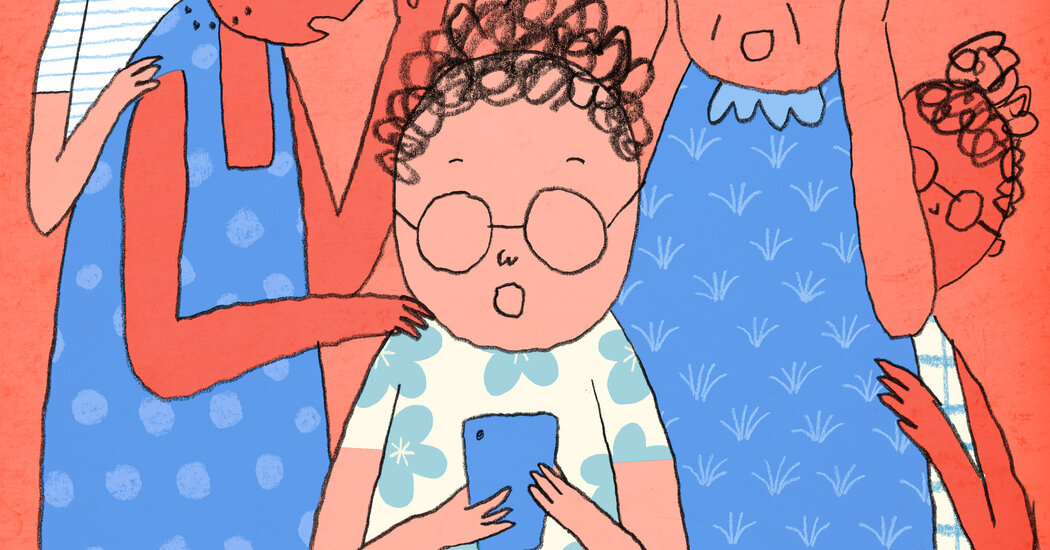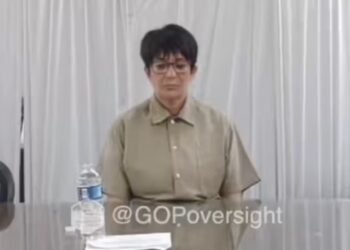
When our mother announced, a few months after our father died, that she would be moving to a retirement community, my brother and I were incredulous. At 73, she was a youngish widow who colored her hair, walked for miles around her Indianapolis neighborhood and played a fierce bridge game. We couldn’t imagine her in assisted living.
“Indiana winters are lonely,” she explained.
My father had chronic joint problems from playing football in college — bad knees, replaced hips. Lacking mobility, he’d needed help with everything, and my mother provided it for over 20 years.
A Southern Baptist who worked as a librarian, my mother had filled our childhood with church and library camps. She was a teetotaler. I had to beg for alcohol to be served at my wedding.
Now, though, my mother was ready for “fun.” Several of her friends lived in a Presbyterian retirement community that was offering a promotion. My brother and I weren’t surprised that she would be tempted by a deal; she grew up during the Great Depression. But what was this thing about fun? Wasn’t she supposed to be grieving our father?
Our worries faded when we met her new neighbors — vibrant seniors enjoying books, travel and wine. My mother discovered “Thirsty Thursday,” a happy hour where she learned to like chardonnay.
When a kind widower asked her to dinner, she said to me, “We’re just friends, but I wouldn’t mind meeting a handsome millionaire.”
We were glad, if perplexed, to see her joking around.
Soon she was buying chardonnay at the drugstore. One of her new neighbors gave her a makeover with blue eye shadow. Who was this woman kicking up her heels? And what had she done with our mother?
As teenagers, my brothers and I lived in fear of violating her rules about curfew, drinking and sex. I was 9 when she sat me down and announced that she had been a virgin when she married and that I would be too. (I wasn’t.)
A decade passed with her enjoying life at the retirement community. I hadn’t thought much of it when she mentioned male friends: Ron, who was popular because of his Netflix subscription; Larrimore, a pastor who drove her to church; Don, a painter who lived next door; and Ed, an older but “very sharp” bridge player with a shiny black Lexus.
My mother said she and Ed were bridge partners and celebrated winning by going to lunch at Panera. My brother was the first to wonder if our mother and Ed were more than bridge partners. He pointed out, indignantly, that she often wasn’t home when he called. “She’s been calling me less,” he said. “She’s acting weird.”
Two weeks later, he called to say that a mutual friend had spotted her on a bench holding hands with a handsome man.
I was astounded. “Why is she being so secretive?”
Our father had been an estate-planning lawyer who said the purpose of life was mitigating risk. He was the reason I became an attorney. When I was in high school, he gave me his and my mother’s burial instructions. He had saved, planned and scrimped to leave our mother a nest egg. Now she was carefree and throwing in with this stranger.
A few days after our discovery, our mother called my brother, and then me, to ask if we were busy on Labor Day. She didn’t say why, but I finally got the truth out of her.
“Ed asked me to marry him,” she said, “and we want to do it on Labor Day.”
My mother was engaged to a man I had never met whom she had known only for a few months. Stunned, I said, “You didn’t even tell me you were dating anyone.”
“I want this,” she said. “If we have five years together, I’ll be happy.”
Wanting to share her joy with me, she suggested we celebrate at her favorite place, the Chautauqua Institution. I agreed to take her, and my brother pointed out our trip would be the perfect place to mention the prenup.
“Thanks,” I muttered.
At Chautauqua, it was hard to get her attention because she was constantly texting Ed, typing with one finger, keeping her volume high so she wouldn’t miss his replies. Late at night, I heard vibrating and chiming through the thin wall of the rental condo as they messaged into the wee hours.
One morning, while she was showering, her phone began shaking on the table. I looked down and saw Ed’s message: Something she’d texted had made him “tingle.”
My mother had apparently learned to sext.
I put off the prenup discussion until our last day at lunch. Our waiter asked if we were celebrating anything, and I said, “Actually, yes. We’re celebrating my mother’s engagement.” When he returned with two flutes of champagne, I’d never seen my mother so happy.
“Mom, we’re thrilled for you and Ed,” I said before explaining why they should have a prenup. “We think Dad would have wanted you to protect yourself.”
She took a sip of champagne and said, “Ed’s daughter said the same thing. We have an appointment with a lawyer. I’ll show it to you before I sign.”
After we returned home, I finally met Ed. My two college-age daughters drove with me from Chicago. I was thrilled to have their company. My anxiety must have matched my mother’s as she waited for teenage me on those late nights long ago.
We arrived first, and I saw Ed’s Lexus enter the parking lot. I watched as he helped my mother out of the car. Tall with white hair and blue eyes, he was craggily handsome.
In the restaurant, he took my hand and said, “I’ll take good care of your mother.”
During lunch, he fussed over her, asking if she wanted her sweater or more ice for her tea. He was a veteran who had been married to his first wife for 55 years and was especially handy.
“I replaced your mother’s towel rods,” he said.
My daughters and I were quiet on the drive back to Chicago until my eldest said, “It will be good for DeeDee to have someone.” The younger one added, “She’s been alone for so long.”
I thought about my mother raising three children born close together. We had barely left home before she started caring for my ailing father. I couldn’t remember anyone ever caring for her.
On her wedding day, I helped her fasten her pearls, the same necklace she wore to marry my father. Arm-in-arm down the hallway we went, from her apartment to the dining room. Nurses and housekeepers lined the walls, some crying. “We’ve never had a wedding here,” one said.
The dining room was crowded with walkers and wheelchairs. Two of my mother’s friends wore sequined ball gowns, and cameras flashed as she and Ed said their vows.
Marriage made my mother so happy. One Christmas at my house, after two glasses of chardonnay, she suppressed a smile and told me they had a great love life. I thought about her enjoying the same pleasures she had worried about me discovering.
As the years passed, my mother and Ed aged rapidly. Ed’s hearing loss worsened, and he grew anxious whenever my mother left their apartment. If she and I were late returning from an appointment, he would be waiting in the hallway, hysterical with worry.
My mother began losing weight. Her arms looked like sticks covered with papery, translucent skin. She often wore a worried expression and lost track of dates.
“Anne’s my person,” she would say to her friends when I visited. “She takes care of me.” Tiny and vulnerable, her eyes dulled by cataracts, she bore no resemblance to the strict mother from my childhood. I felt an intense desire to protect her.
Last year, on a crisp October day eight years after her wedding, she and I shopped for new pajamas, ate lunch and picked up some chardonnay. We returned to their apartment for her physical therapy appointment, where she asked for a “taste” of the wine. She raised her goblet, thanking me for a perfect day.
Early the next morning, a nurse found her unresponsive on her couch with the TV blaring. She was wearing her new pajamas. I stayed with her in the I.C.U. for several days, holding her hand, unsure if she knew I was there. Ed was wheelchair-bound by then, but my husband brought him to be at her bedside.
On the morning of her cemetery service, a soft sun warmed our faces. Ed watched solemnly as the attendant hoisted my mother’s urn into the mausoleum wall. Seeing his wet eyes, I squeezed his shoulder and reminded him how much my mother loved him.
“I loved her,” he said. “We had eight good years.”
“I know,” I said. “I loved her too.”
Anne Glaser is a writer in the Chicago area.
Modern Love can be reached at [email protected].
To find previous Modern Love essays, Tiny Love Stories and podcast episodes, visit our archive.
Want more Modern Love? Watch the TV series, sign up for the newsletter and listen to the podcast on iTunes or Spotify. We also have two books, “Modern Love: True Stories of Love, Loss, and Redemption” and “Tiny Love Stories: True Tales of Love in 100 Words or Less.”
The post The Sexting Seniors of Assisted Living appeared first on New York Times.



